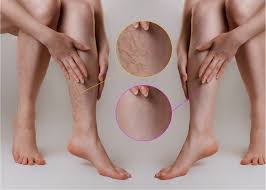If you’ve ever searched online for answers to venous problems, you might have asked yourself, “What is a vein doctor called?” A vein doctor is commonly known as a phlebologist. These medical professionals specialize in diagnosing and treating vein-related conditions such as varicose veins, spider veins, chronic venous insufficiency, and deep vein thrombosis.
Phlebologists often have backgrounds in vascular surgery, interventional radiology, or dermatology, which allows them to offer a wide range of minimally invasive treatments. They focus on restoring proper blood flow in the veins and relieving discomfort, swelling, or cosmetic concerns that arise from vein disorders.
What Does a Vein Doctor Do?
Vein doctors perform diagnostic evaluations and customized treatment plans for patients with venous disorders. Their primary goal is to improve circulation and prevent complications like ulcers or blood clots.
Here’s what you can expect during a visit:
- Initial Consultation: The vein doctor listens to your symptoms, examines your legs, and reviews your medical history.
- Diagnostic Testing: Most patients undergo a duplex ultrasound to assess blood flow and locate faulty valves.
- Treatment Planning: Based on results, the vein specialist will discuss the most effective treatment options.
- Procedure Execution: Many vein treatments are outpatient, meaning you go home the same day.
- Follow-Up Care: You’ll have scheduled check-ups to ensure your veins heal properly and your symptoms resolve.
Vein doctors use non-invasive and surgical methods depending on the severity of the condition. They tailor every approach to fit the patient’s health needs and lifestyle.
When Should You See a Vein Doctor?
Recognizing the signs of vein disease early is crucial. Here are common reasons to book a consultation:
- Bulging or twisted varicose veins
- Aching, heavy, or tired legs
- Swelling in your ankles or feet
- Skin discoloration or ulcers around the ankles
- Spider veins that cause cosmetic concerns
- Burning or throbbing pain after standing
If you notice any of these symptoms, searching for vein treatment near me could help you find a specialist who can diagnose the issue and recommend effective solutions.
How Do Vein Doctors Treat Vein Conditions?
Today’s vein treatments are safer and more efficient than ever before. Here are some of the most popular procedures offered by phlebologists:
- Sclerotherapy
Sclerotherapy involves injecting a solution into the affected vein, causing it to collapse and fade over time. This treatment works well for spider veins and small varicose veins.
- Endovenous Laser Therapy (EVLT)
This laser treatment uses heat to close off larger varicose veins. It’s minimally invasive and usually performed in the doctor’s office under local anesthesia.
- Radiofrequency Ablation
Similar to EVLT, this method uses radio waves instead of lasers to seal the vein. It’s a quick, comfortable option for people with chronic venous insufficiency.
- Ambulatory Phlebectomy
This procedure removes surface veins through tiny punctures in the skin. Doctors often use it for twisted or bulging veins that don’t respond to non-invasive treatments.
- VenaSeal
This method uses a medical adhesive to close veins instead of heat or chemicals. It’s painless and requires no compression stockings post-treatment.
With any of these treatments, your vein doctor will ensure you experience minimal discomfort, fast recovery, and visible results.
Where Can You Find Vein Treatment Near Me?
If you’re asking, “Where can I find quality vein treatment near me?”—you’re not alone. Many people seek local vein clinics to avoid traveling long distances and to receive care from specialists familiar with regional health trends.
When searching for a nearby vein clinic, consider the following:
- Board Certification: Look for doctors certified in phlebology or vascular medicine.
- Experience: Choose a clinic that has successfully treated thousands of patients.
- Technology: Opt for facilities that offer the latest ultrasound and laser equipment.
- Patient Reviews: Reading testimonials and checking ratings can guide your decision.
Use online directories, Google Maps, or specialized healthcare websites to find reliable vein doctors in your area. Just search vein treatment near me and compare clinics based on services, experience, and patient satisfaction.
Why Do People Develop Vein Problems?
Many factors contribute to the development of vein disorders, including:
- Genetics: If your parents had varicose veins, you’re more likely to get them too.
- Age: Vein valves weaken over time, leading to pooling of blood.
- Pregnancy: Hormonal changes and increased blood volume strain your veins.
- Prolonged Standing or Sitting: People with desk jobs or standing professions often struggle with circulation.
- Obesity: Extra body weight puts more pressure on your leg veins.
Understanding the root cause helps your vein doctor determine the best long-term treatment strategy. In many cases, early intervention prevents more serious complications.
What Lifestyle Changes Support Healthy Veins?
Your vein doctor will likely recommend simple lifestyle changes that support better vein health:
- Exercise regularly to stimulate circulation.
- Elevate your legs after long periods of standing.
- Wear compression stockings if recommended.
- Avoid tight clothing around the waist or thighs.
- Stay hydrated and maintain a balanced diet.
These practices can enhance treatment results and reduce the likelihood of new vein issues forming.
What Are the Benefits of Seeing a Vein Doctor?
Patients who seek help from a vein doctor often experience:
- Relief from pain, swelling, and heaviness
- Improved appearance of legs
- Better sleep and mobility
- Prevention of ulcers or skin breakdown
- Increased confidence and comfort
Thanks to modern techniques, you no longer have to suffer silently or feel embarrassed about your veins. A phlebologist offers both medical and cosmetic improvements that significantly enhance your quality of life.
Final Thoughts: Take the First Step Toward Vein Health
So, what is a vein doctor called? A phlebologist—a dedicated specialist who treats vein diseases with skill and compassion. Whether you’re bothered by unsightly veins or painful symptoms, visiting a vein doctor can help you feel better and look your best.
Don’t ignore signs of vein disease. Use online tools to find vein treatment near me, read reviews, and schedule a consultation. The sooner you act, the easier it will be to manage the problem.
Healthy veins support a healthy life—and your local vein specialist is ready to help you achieve just that.



